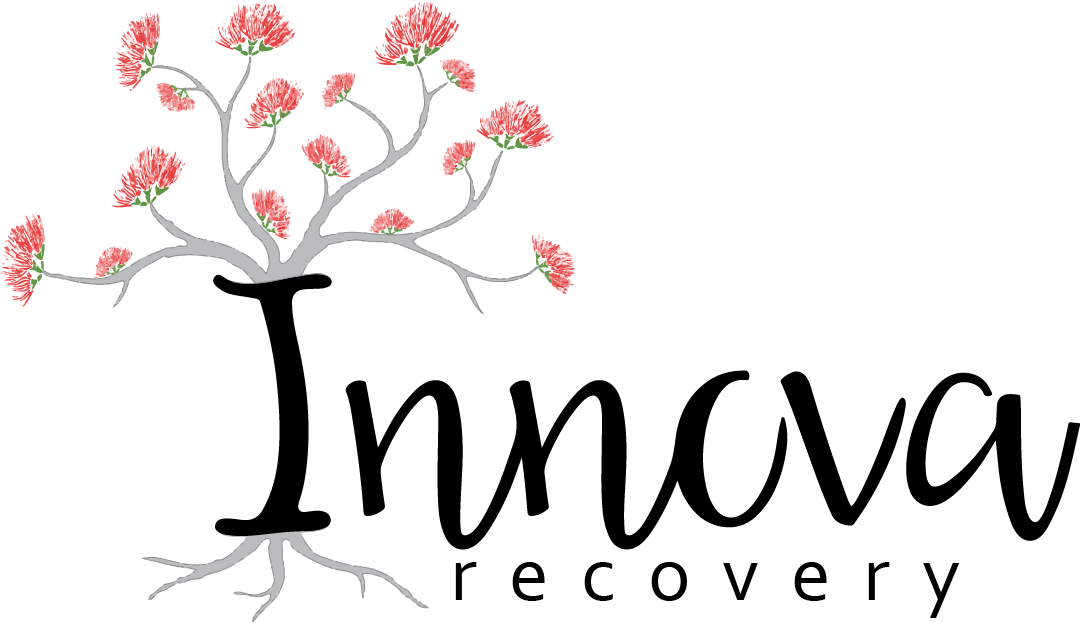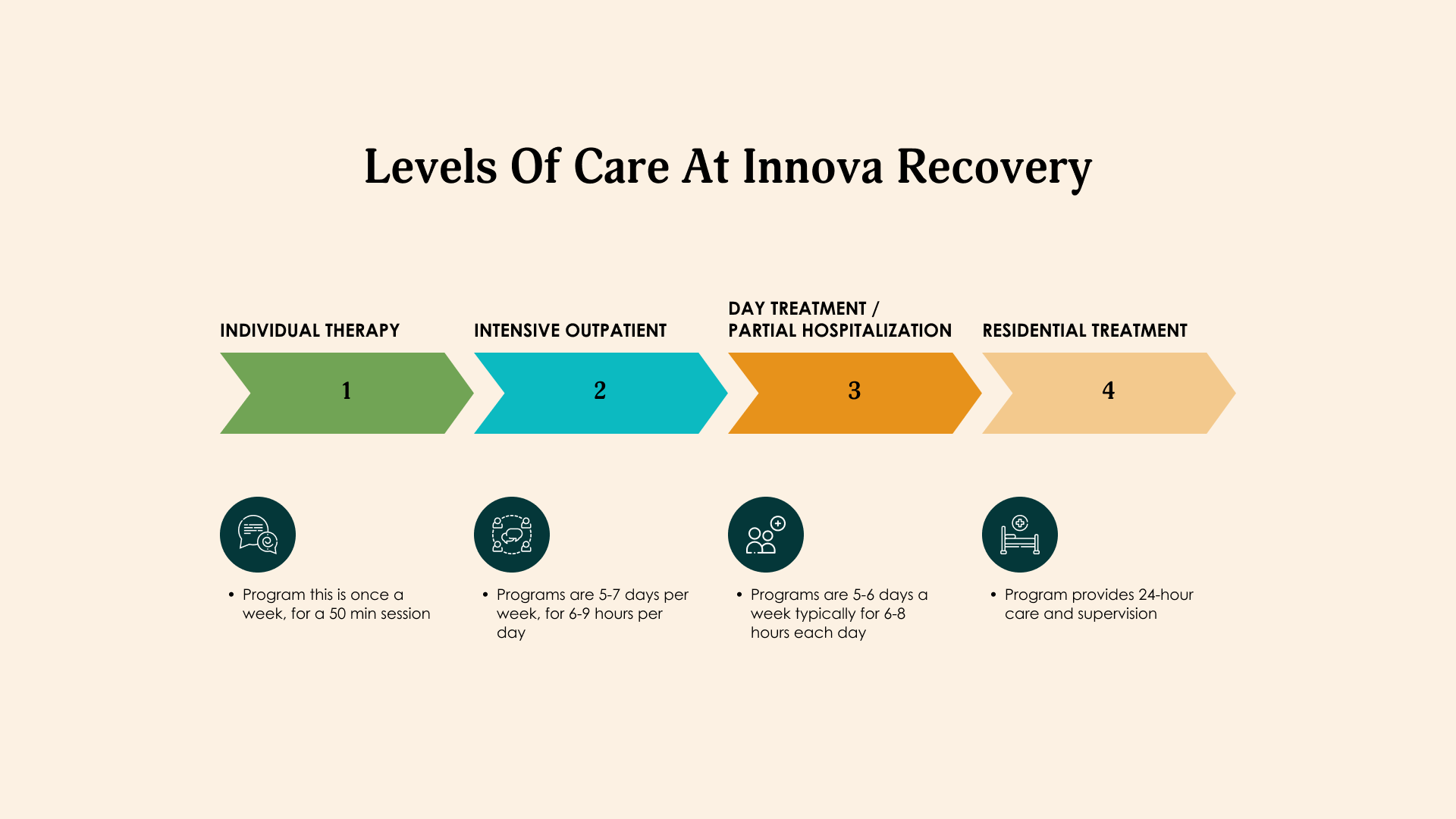Individual Therapy (Outpatient Treatment)
This is the level of care most people are familiar with. Typically this is once a week, for a 50 min session. These sessions are great to address issues of the past and present that are causing mild to moderate distress but are not interfering with overall functioning on a day-to-day basis. If this is not effective, it may be time to consider a higher level of care.
Intensive Outpatient Treatment (IOP)
In general, an IOP is three days out of the week for at least three hours per day. Individual therapy is also a key part of IOP. The programs can vary, possibly being more days and more hours. These programs offer more opportunities for skill building, to address issues on a more in-depth level, and should be specialty-based. That means survivors of trauma should have a trauma-specific IOP and so forth. Individuals who are struggling to attend work and/or school, having severe relationship issues, and experiencing interference in their daily lives as a result of their symptoms are appropriate for this level of care. IOP clients can keep themselves safe by maintaining basic life activities such as showering and eating and do not have severe suicidal or self-harm thoughts. If these things are present, a higher level of care is warranted.
Day Treatment / PHP
These types of programs are 5-7 days per week, for 6-9 hours per day. Interventions include group therapy, individual therapy, and medication management as warranted. At this point in their care, patients, their families, and their providers have identified that treatment needs to be the primary focus rather than work or other family responsibilities and that taking a step back from work and/or school to focus on self-care and recovery is critical.
Residential Treatment
This is what most people think of as “rehab.” However, there are residential therapy options for issues other than substance abuse. These include eating disorders, depression, and trauma to name a few. This level of care is for those who struggle to keep themselves safe, complete daily responsibilities, and maintain key relationships. Additionally, those who want to kickstart recovery with intense intervention can choose residential treatment. Being away from the demands of life which can be distracting from one’s personal goals of healing can provide much-needed focus and relief.
Aftercare and Support Groups
Once an individual has transitioned from a more intense level of care, ongoing support is critical to maintaining recovery. Aftercare might include regular check-ins with mental health professionals, medication management, or continued therapy. Support groups, both in-person and online, also play a vital role in many individuals’ recovery. These groups offer a supportive and understanding community for individuals to share their experiences, struggles, and successes.
Overall, mental health care and trauma recovery are not one-size-fits-all. Each person’s journey will be unique, and their level of care should be tailored to meet their individual needs. The critical aspect is getting the help one needs and seeking a higher level of care when necessary.









